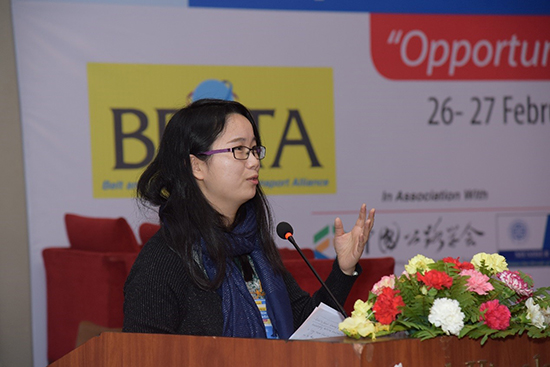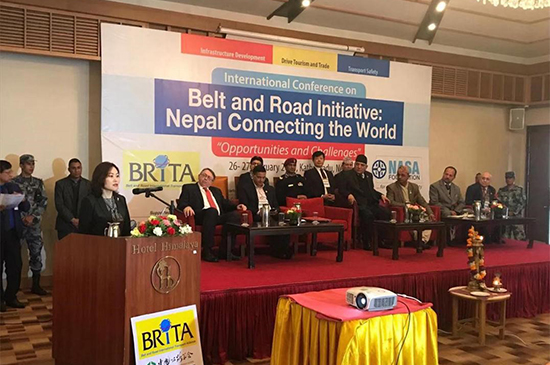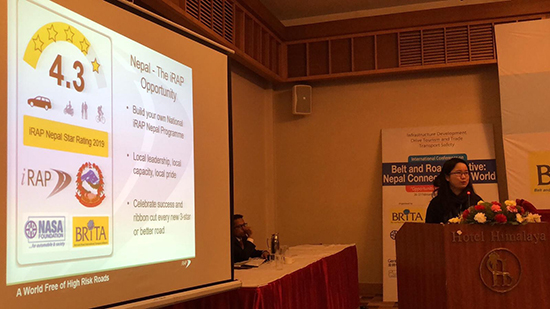February 2019: On February 26-28, the International Conference on Belt and Road Initiative: “Nepal Connecting the World” was successfully held in Kathmandu, Nepal, hosted by the Belt and Road International Transport Alliance (BRITA) and Nepal Automobiles’ Association (NASA).
During the opening, the Chinese Ambassador to Nepal Hou Yanqi expressed the hope that Nepal would immensely benefit from the Belt and Road Initiative. The conference participants included experts from UK, Australia, India, South Africa, China, Sri Lanka, and Vietnam, among others.
BRITA, founded in June 2018 in Beijing, is an international organization overseeing Belt and Road related activities around the world. BRITA currently has 170 members from 33 nations. The International Conference, organized by BRITA and the Nepal Automobiles’ Association (NASA) Foundation, was the first international BRITA conference and iRAP as a founding Alliance organization and was invited to participate in the event. iRAP CEO, Rob McInerney is on the Board of the Alliance.
ChinaRAP representative Han Hu, a Senior Engineer with the Research Institute of Highway Ministry of Transport (RIOH), presented in the Transport Safety Session on “Global Road Safety and 3-Star or Better Roads” . Han showcased iRAP and ChinaRAP’s work globally and locally in Nepal, and the potential of the Belt and Road Initiative to improve road safety.
Road crashes currently cost Nepal an estimated 4.1% of GDP. Ensuring all road investment in Nepal contributes to UN Global Performance Target 3 (ensuring all new roads are built to a 3-star or better standard for all road users) and 4 (ensuring more than 75% of travel is on the equivalent of 3-star or better roads for all road users by 2030) will be critical to achieving the UN Sustainable Development Goals. The Belt and Road Initiative can make important contributions to the targets being achieved.
Chinese International Investment in road infrastructure built to a 3-star or better standard for all road users as part of BRITA and other bi-lateral partnerships has the potential to save thousands of lives. In Nepal, achieving greater than 75% of travel on 3-star or better roads for all road users by 2030 stands to save over 2,000 lives each year with an economic benefit to the country of over USD$6 billion.
iRAP has assessed around 700km of roads in Nepal, with potential to extend the Star Rating methodology to the rest of the road network to identify prioritized sections for road safety improvement. In her presentation, Han encouraged Nepal to set up their own national RAP programme and highlighted ChinaRAP’s road safety capacity building work in Pakistan as a support.
Related news article: Belt and Road Initiative brings new opportunities for Nepal: former Nepali PM (China.org.cn)
Image description: ChinaRAP’s Han Hu Presenting (L) and Chinese Ambassador to Nepal Hou Yanqi making Keynote Speech (R).




















